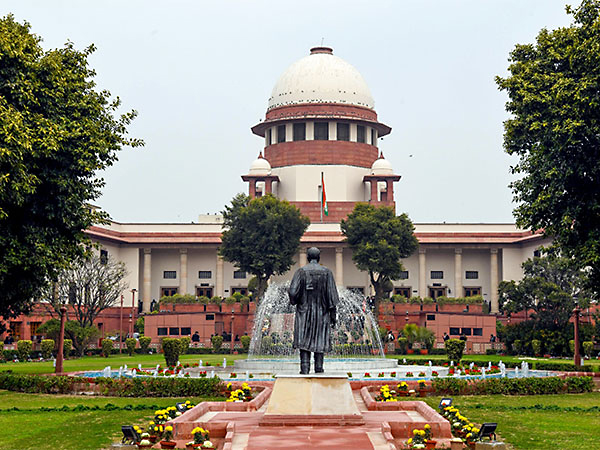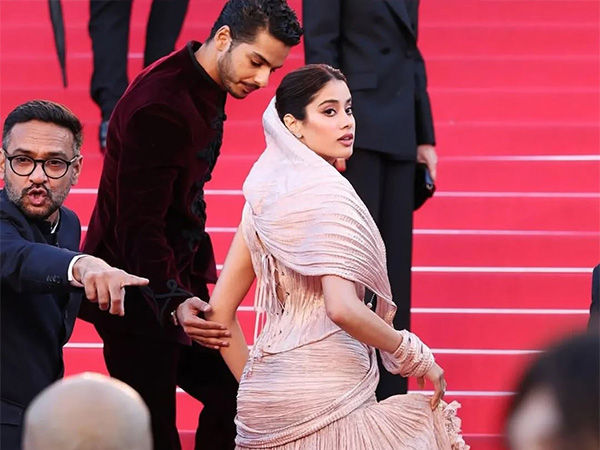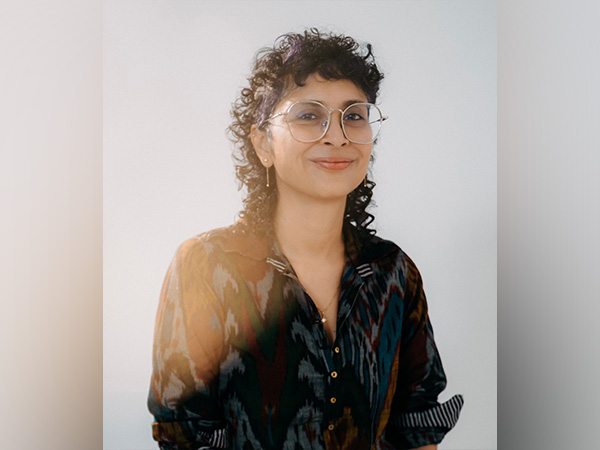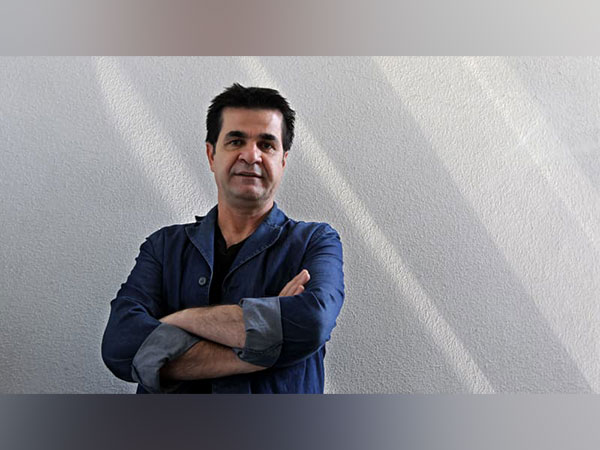By Amiya Kumar Kushwaha
New Delhi [India], August 1 (ANI): The Supreme Court on Thursday opined on the need for identifying creamy layers in SC/STs, as four out of seven judges of the Constitution Bench on Thursday suggested excluding these people from the benefit of affirmative reservation.
Justice BR Gavai expressed his view that the state must evolve a policy for identifying the creamy layer for the Scheduled Castes and Scheduled Tribes (SCs and STs). The suggestion of identifying creamy layers in scheduled castes and scheduled tribes was part of the judgment delivered on Thursday by the seven-judge bench, whereby a majority judgment of 6:1 held that sub-classification within the SC/STs is permissible.
The judgment was delivered by the seven-judge bench led by Chief Justice of India DY Chandrachud, which overruled an earlier judgment in the EV Chinnaiah matter, which held that sub-classification was not permissible because SCs and STs form homogenous classes.
Besides CJI Chandrachud, other judges on the bench were Justices BR Gavai, Vikram Nath, Bela M Trivedi, Pankaj Mithal, Manoj Misra, and Satish Chandra Sharma. Justice Bela M Trivedi, in a dissenting opinion, said that she disagreed with the majority judgment that sub-classification within the scheduled caste and scheduled tribes is permissible.
Justice BR Gavai suggested that the state evolve a policy for identifying the creamy layer, even from the Scheduled Castes and Scheduled Tribes to exclude them from the benefit of affirmative action.
“I am therefore of the view that the State must evolve a policy for identifying the creamy layer even from the Scheduled Castes and Scheduled Tribes so as exclude them from the benefit of affirmative action. In my view, only this and this alone can achieve the real equality as enshrined under the Constitution,” Justice BR Gavai said.
Justice Gavai further added that the criteria for exclusion of the creamy layer from the Scheduled Castes and Scheduled Tribes for the purpose of affirmative action could be different from the criteria as applicable to the Other Backward Classes.
Expressing similar opinions to Justice Gavai, Justice Vikram Nath, Justice Pankaj Mithal, and Justice Satish Chandra Sharma, they said that they agreed with his brother’s judge for the exclusion of the creamy layer for affirmative action.
In the order copy, Justice Vikram Nath said, “I am also in agreement with the opinion of Brother Justice Gavai that the ‘creamy layer’ principle is also applicable to Scheduled Castes and Scheduled Tribes and that the criteria for exclusion of creamy layer for affirmative action could be different from the criteria as applicable to the other backward classes.”
An identical view was also given by Justice Pankaj Mithal, who said, “It is reiterated that periodical exercise has to be undertaken to exclude the class of person who after taking advantage of reservation has come to march, shoulder to shoulder with the general category.”
Relatable suggestions came from Justice Satish Chandra Sharma, who remarked that
the identification of the ‘creamy layer’ of Scheduled Castes and Scheduled Tribes ought to become a constitutional imperative for the state.
“However, on the question of the applicability of the ‘creamy layer principle’ to Scheduled Castes and Scheduled Tribes, I find myself in agreement with the view expressed by Justice Gavai, i.e., for the full realization of substantive equality between the Scheduled Castes and Scheduled Tribes, the identification of the ‘creamy layer’ qua Scheduled Castes and Scheduled Tribes ought to become a constitutional imperative for the State,” Justice SC Sharma said in the order copy.
Justice Gavai, in his order copy, also highlighted disparities and social discrimination that are highly prevalent in rural areas.
“I have no hesitation in holding that putting a child studying at St Paul’s High School and St. Stephen’s College and a child studying in a small village in a backward and remote area of the country in the same bracket would obliviate the equality principle enshrined in the Constitution,” Justice Gavai said.
Justice Gavai noted that some of the officers from the Scheduled Castes and Scheduled Tribes categories, who, after receiving the benefit of reservation under the Constitution, have reached high positions, are doing their bit to pay back to society. “They are providing coaching and other facilities to the less advantaged so that they can compete and come up in their life. However, putting the children of the parents from the Scheduled Castes and Scheduled Tribes who on account of the benefit of the reservation have reached a high position and ceased to be social,
economically and educationally backward and the children of parents doing manual work in the villages in the same category would defeat the constitutional mandate,” Justice Gavai said.
“However, I may observe that, taking into consideration that the Constitution itself recognises the Scheduled Castes and Scheduled Tribes to be the most backward section of society, the parameters for exclusion from affirmative action of the person belonging to this category may not be the same that applies to the other classes. If a person from such a category, by bagging the benefit of reservation, achieved a position of a peon or maybe a sweeper, he would continue to belong to the socially, economically, and educationally backward class,” Justice Gavai said.
“At the same time, the people from this category, who, after having availed of the benefits of reservation, have reached the high echelons in life cannot be considered to be socially, economically, and educationally backward to continue availing of the benefit of affirmative action. They have already reached a stage where, on their own accord, they should walk out of the special provisions and give way to the deserving and needy,” Justice Gavai said.
Justice Gavai quoted the observations of Dr BR Ambedkar, which are as follows: “History shows that where ethics and economics come into conflict, victory is always with economics. Vested interests have never been known to have willingly divested themselves unless there was
sufficient force to compel them.”
The Supreme Court on Thursday ruled by a majority judgment of 6:1 that sub-classification within the scheduled caste and scheduled tribes (SC/STs) reservation is permissible. The top court was dealing with the issue of whether subclassification of the Scheduled Castes for reservation is constitutionally permissible.
The apex court was dealing with the constitutional validity of Section 4(5) of the Punjab Act, which depends upon whether any such classification can be made within the class of Scheduled Castes or Scheduled Tribes or whether they are to be treated as a homogenous class.
The Punjab Government had stipulated that fifty percent of the vacancies of the quota reserved for Scheduled Castes in direct recruitment shall be offered to Balmikis and Mazhabi Sikhs, subject to their availability, by providing first preference from amongst the Scheduled Caste candidates.
On March 29, 2010, the Punjab and Haryana High Court struck down the provisions, relying on the decision in EV Chinnaiah. The appeal was filed in the top court against the High Court judgment. In August 2020, the top five-judge benches referred the matter to a larger bench. (ANI)
Disclaimer: This story is auto-generated from a syndicated feed of ANI; only the image & headline may have been reworked by News Services Division of World News Network Inc Ltd and Palghar News and Pune News and World News
HINDI, MARATHI, GUJARATI, TAMIL, TELUGU, BENGALI, KANNADA, ORIYA, PUNJABI, URDU, MALAYALAM
For more details and packages

















